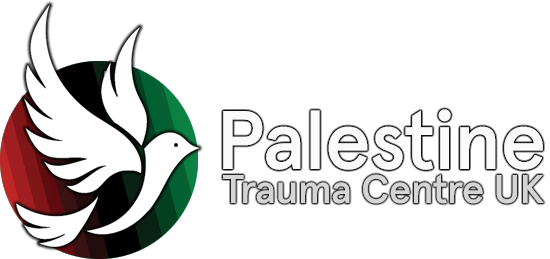Case Study
Strength within the Community
Nour el-Marifa
Our delivery partner in Gaza since 2019
Nour El-Marifa Association is a charitable, non-governmental non-profit organization situated in Nusierat in the central area of Gaza. It was established in 2000 (license number: 6082). Its primary mission is to enhance the capacities of students of all abilities, taking a particular interest in those with special needs, from the very beginning of his/her study path till graduation. Also it aims to help needy and poor families trying to improve their hard living conditions. In addition, it sponsors orphaned children and those who belong to poor families.
Partnership ceremony between Palestine Trauma Centre (UK) and Nour el-Marifa Association. 2019
Community and Resilience
Cumulative trauma. An 11-year-old child in Gaza has experienced three large-scale wars, irregular electricity supplies, interrupted education and increasing poverty for his or her whole life. Children know of their community’s trauma from 1948 onwards. They are emotionally connected to this collective suffering as well as experiencing their own daily struggles to cope with the sudden roar of jet aircraft or the buzz of drones which threaten death.
There is some evidence of parents’ and grandparents’ traumas contributing to the stress that grows around children at home. Children often work, carry water, help with house repairs, like nailing polythene onto window spaces; they care for the very young or the elderly when parents get too tired; even a twelve year old can be the most stable emotional force in a household.
Positive factors which can be utilised in the therapeutic process:
A number of environmental factors exist which can be activated to enhance resilience and boost subjective wellbeing. Given the lack of professional mental health support, activating the community resources for rebuilding psychological strength becomes imperative.
Family units. These are fundamental as a therapeutic resource. The family, often all living in the same building, is central to the community. Traditional codes of honour remain important in many families. Informal judicial practices operate inside family clans to maintain harmony, group cohesion and welfare. An elected leader/mediator (mukhtar) often arbitrates in disputes amongst extended family members and officiates at community events. Heads of families combine to form an urban elite. A local mukhtar can preside over social events that have a therapeutic purpose, thus helping to overcome issues around stigma, as seen in this picture.
Schools. Schools are surviving, though they often run in half-day shifts. There are very few schools for those with special needs. Overall, however, literacy rates are very high in Gaza. In 2018 a 10% decrease in illiteracy rates over the past 20 years was reported by the Palestine Central Bureau of Statistics [BCDS. September 2018], an astonishing achievement given the worsening conditions over that time. Pride in educational achievement fosters resilience.
Spiritual / religious life. Religion provides much psychological security at a local level. The Imam may be the first person in a community to act as helper in an emotional crisis. It has been suggested by Dr Samah Jabr, Head of the Mental Health Unit at the Palestine Ministry of Health, that Imams and Mukhtars should receive special training in psycho-social methods in order to enrich their resources for dealing with these problems (S. Jabr speaking at “Palestinian Childhoods” conference, Birkbeck, London. March 2019). In this picture, Friday prayers are held in front of the ruins of a bombed mosque. The discipline of the spiritual life continues and enhances resilience.
Artists and other people with skills relevant to psycho-social support. These include entertainers, teachers, artists, sports enthusiasts, poets, singers and storytellers. Groups of young people are increasingly setting up news agencies, film-making and internet start-ups. PTC(UK)’s Days of Joy contributes to this process.
PTC(UK) Photography project in Gaza 2013
Professional Community
Birmingham University: Rights4Time
This link with a British university provides our Gaza team with training in research methods and promotion of their Focusing Project. Rights4Time runs until 2024.
Focusing Institute
This link with Focusing in the United States brings together worldwide research into this technique and a forum to spread the knowledge gained by our training project in Gaza.
Deep listening for kids
Focusing Conference 2016
Green stick method
Global Community
UK-Palestine Mental Health Network
The UK-Palestine Mental Health Network brings together the UK mental health community to link with and support practitioners in Gaza and the West Bank. It holds online conferences and conducts advocacy campaigns to highlight the issues facing Palestinian mental health workers. It works with similar groups across the world. Website: www.uk-palestine-mhn.org
Arab Network
PTC(UK) hosts a series of online seminars / tutorials in Arabic. It has attracted hundreds of participants from across the Arab world.














